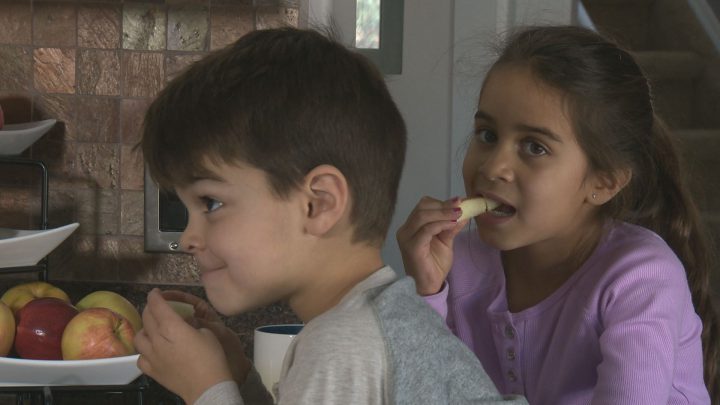The first time Ally Kothari set her hands on a cellular phone, she was 19 years old and travelling abroad in Australia.

“It was a Nokia – a little rectangle Nokia phone that fit in every pocket,” Kothari said with a laugh. “Texting was super simple but that’s what everybody did… that was ages ago it seems.”
More than a decade has passed since then and Kothari is now a mother of two, an early learning facilitator and the director of two Mommy Connections programs.
She ditched the Nokia a long time ago and now uses a smartphone to send work emails, text family members and friends, browse the internet and take photos of her children.
“I take any kind of free time that I have to try to get a little bit of work done,” Kothari said. “So definitely I’ll take the breaks between dance class or hockey practice to check emails or do things like that.”
The convenience of working and communicating on the go comes at a cost though. The mother of two admits she is digitally dependent.
“It would be something my husband would notice and say, ‘Can this wait?’ Or, ‘Is this something you can do a little bit later?’ But to me, it’s there, I want to get it done and then it’s off my plate.”
Kothari is agreeing to exchange her smartphone for a Freedom Mobile LG flip phone for a week in an effort to be more efficient with her time and more present with her family.

Get breaking National news
READ MORE: Nomophobia: These are the clear signs you’re too attached to your phone, according to docs
We went to Benjamin Wong, a clinical counsellor at the Richmond Addictions Services Society, to find out what Kothari may be in for.
“I know first-hand, partly because I’ve done my own 24-48 hour digital detox myself,” Wong said. “So, my body and mind – both of them – will need some time to adjust to the lack of constant intrusion, constant bombardment, constant disruption as a result of incoming texts, incoming emails, incoming voice mails, incoming social media messages. My mind, for the first day and a half or two, would continue to seek out some of these distractions, almost expecting them to happen but they are not.”
Wong said people like Kothari, who commit to a digital detox, may experience a kind of withdrawal from stimuli, newfound time and a “strong sense of missing out.”
“This myth of missing out on things, which after a week when she reevaluates and when she looks back at the digital messages she would have missed, she would realize that none of those messages would have altered how she would have gone about the week.”
READ MORE: Why your phone and the ‘fear of missing out’ may negatively impact your mental health
The counsellor believes everyone could benefit from stepping away from their smartphone.
“All of us can have some respite outside of the digital world, outside of Wi-Fi, outside of cyberspace,” Wong said.
Kothari looks forward to that respite, in spite of feeling a bit nervous about not having a sophisticated device at her fingertips.
In solidarity with Kothari, Family Matters producer Christine Meadows and I have committed to powering down our smartphones for a week. You can find out how we did on Thursday.










Comments
Want to discuss? Please read our Commenting Policy first.